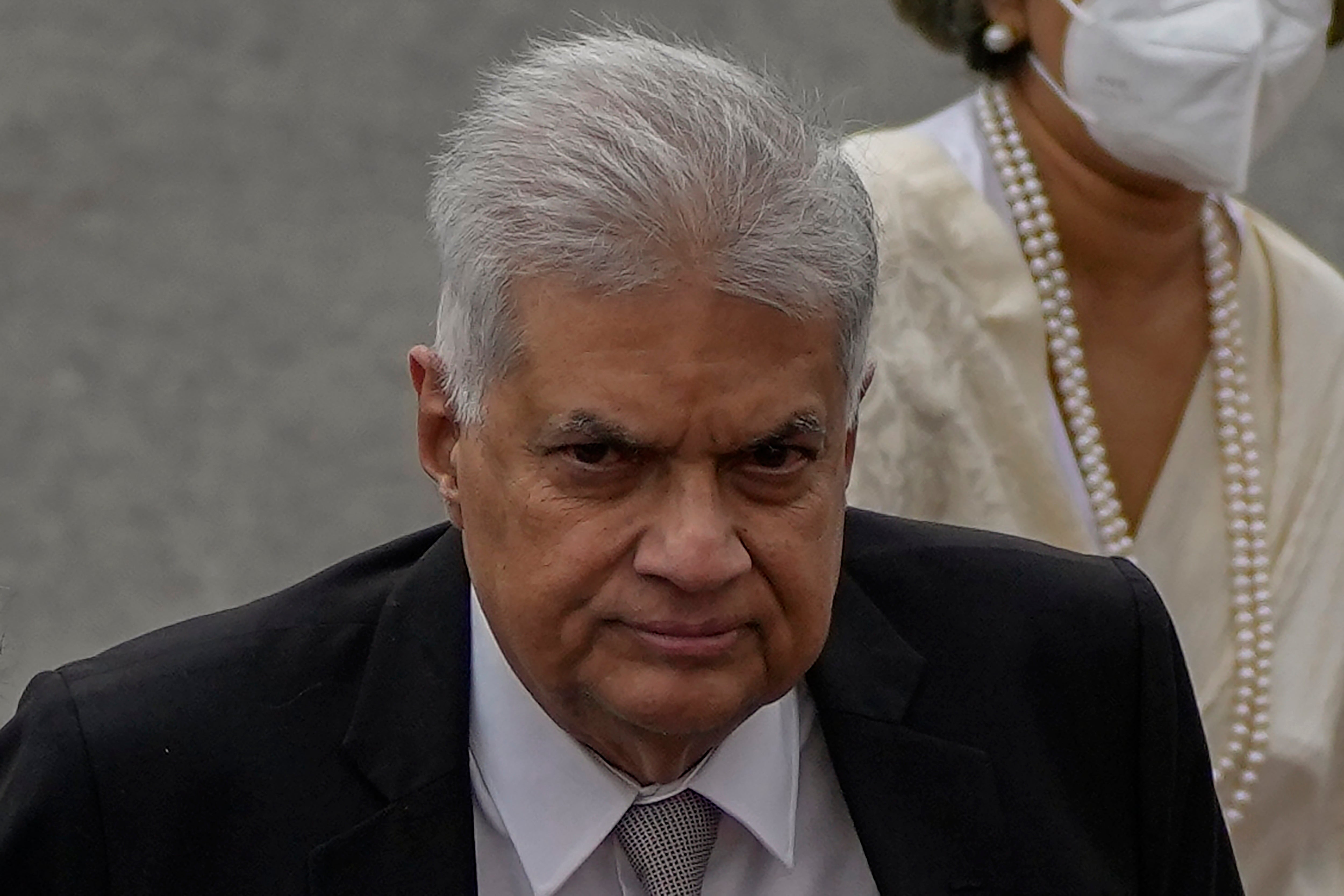Sri Lanka's president to present relief budget amid crisis
Sri Lanka’s government plans to present an amended budget for the year that slashes expenses and aims to provide relief to people hit hard by an economic meltdown

Sri Lanka’s new government plans Tuesday to present an amended budget for the year that slashes expenses and aims to provide relief to people hit hard by the country's economic meltdown.
President Ranil Wickremesinghe, who is also the finance minister, will present the budget in Parliament, which will voted on it after a debate.
The government is negotiating with a visiting International Monetary Fund team on a program to rescue Sri Lanka from its economic crisis. The government is also preparing to negotiate a restructuring of foreign loans Sri Lanka is unable to repay because of a severe foreign exchange shortage.
Prior to the visit, the IMF said in a statement because Sri Lanka’s public debt is unsustainable, the IMF's executive board will need assurances by Sri Lanka’s creditors that debt sustainability will be restored before any bailout program begins.
Sri Lanka’s total foreign debt exceeds $51 billion — of which it must repay $28 billion by 2027.
The IMF delegation is expected to conclude its visit Wednesday and the government hopes to reach a preliminary agreement by then.
Sri Lankans have faced acute shortages of essentials like fuel, medicine, and cooking gas for months. Though cooking gas supplies were restored through World Bank support, shortages of fuel, critical medicines and some food items continue.
Long fuel lines are reappearing after a quota system seemed to have brought them under control over the past weeks.
“I thought things are improving,” salesperson Asanka Chandana said. “For several weeks in May and June, we faced severe hardships, but things were getting better over the last two weeks after the introduction of the quota system. Now it looks like the shortage is still there and we are back to the square one."
Power and Energy Minister Kanchana Wijesekera said lapses in distribution, delays in unloading, and payments for orders by fuel stations have created long lines. He said the issues will be sorted within days.
The new budget comes amid a relative calm following months of public protests that led to the ouster of Wickremesinghe’s predecessor Gotabaya Rajapaksa and his family members from power. Protesters accused the once-powerful Rajapaksa political family of being primarily responsible for the economic crisis through corruption and mismanagement.
Rajapaksa fled the country in July and resigned after protesters stormed his official residence. He is now in Thailand.
Party leaders say Rajapaksa is expected to return from exile early in September and have asked Wickremesinghe to provide him with security and facilities to which a former president is legally entitled.
Wickremesinghe, who was elected president in Parliament mainly through the votes of Rajapaksa’s loyalists, has since cracked down on protesters, arresting leaders and those occupied the president’s official residence and other key state buildings at the height of the demonstrations.
He also had the protest site opposite the president’s office dismantled.
The crackdown and the use of a harsh anti-terror law to detain a protest leader has led to the United States and European Union raising human rights concerns.
Wickremesinghe has also largely silenced those calling for his resignation who believe he is only an extension of Rajapaksas’ administration and protecting the political future of the former ruling family.
At one time besides the president, the prime minister and four other government ministers came from the same family before all of them were forced to resign.
“I don't see a significant change except there is a new person in the office of the president,” political analyst Jayadeva Uyangoda said.
Rajapaksa's politics continue because his party still holds the majority in Parliament.
Wickremesinghe has unsuccessfully tried to convince opposition parties to join his government so they could win over international trust.
“No opposition party seems to be willing to join Mr. Wickremesinghe's proposed all-party government for two reasons; they think Mr. Wickremesinghe lacks legitimacy and they are not happy with the dominance of the Rajapaksa party,” Uyangoda said.
Bookmark popover
Removed from bookmarks